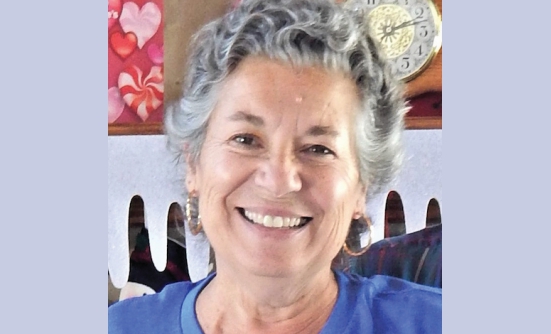
You just received a cancer diagnosis. Panic ensues, as does a whirlwind of tests, processes, procedures, and an onslaught of questions, uncertainty, and emotions. Most patients enter fight or flight mode and focus on survival when they are told they have cancer. Focusing on what we know, what is to come, and how it impacts our life in the near and distant future is normal. However, there is a lot to consider that does not meet the eye and is not common knowledge, and that is where education and experts can help guide you.
So often, when an adolescent or young adult (AYA), defined as aged 15 to 39 years, is diagnosed with cancer, it comes as a complete surprise, and when presented with the possibility that fertility preservation should be considered because there is some likelihood of infertility, it is complete and utter shock. Fertility preservation becomes yet another thing to consider in the mounting list of to-dos, and unfortunately, it comes with an urgent timeline.
Every patient’s cancer experience is unique. We all have our own life circumstances, different things we value and that motivate us. When considering our treatment options, the oncologist is the expert on the treatment plan, but as the patient, you are ultimately in the driver’s seat. You get to decide, regardless of your reasoning, what you want to pursue or not pursue. Along with your treatment plan, fertility preservation should be one of those considerations that you get the final say in. It is worth asking your medical team about fertility-sparing treatment options whether or not you pursue fertility preservation at the time of diagnosis. It should be noted that fertility-sparing treatment for endometrial cancer is not the standard of care.1
Most patients do not come into a cancer diagnosis knowing that the cancer and different treatment options may cause infertility. Surgery, medications, chemotherapy, and radiation can all individually and in combination affect your future childbearing ability. The goal of fertility preservation is to preserve your ability to become pregnant. Eggs or embryos (eggs that have been fertilized by male sperm) may be preserved for future use in the event that treatment impacts your fertility. Ideally, fertility preservation discussions and the actual process of preserving is completed before any treatment commences.
Endometrial cancer (uterine cancer) is the most common gynecological cancer in women.2 Depending on the staging, the grade of the cancer gives you and your medical team some indication of the impact on your future fertility. Low-grade endometrial cancer often has a bit less of a risk than high-grade. However, having a cancer in a reproductive organ should trigger a serious consideration of fertility preservation, as the chances of adverse effects to your fertility are greater than with other types of cancers.
As science and technology evolve, so do the long-term survival rates and the options for treatment, fertility preservation, and childbearing. Women with endometrial cancer have an 80% 5-year survival rate.2 The possibility of a long and productive life is now seen more commonly, and thus the ability to build a family is something to take into consideration. Whether or not fertility preservation is pursued at the time of diagnosis and before treatment, there are options to build families, perhaps just not the way initially envisioned.
Things to Consider
Not literally, but figuratively, your voice should be the loudest in the room. You should feel empowered to voice your concerns, opinions, and desires and have them taken into consideration before a treatment plan is agreed upon. Having a mutual understanding will significantly help with compliance, satisfaction, and quality of life and hopefully lead to the health outcomes and family planning desired.
This is your health and life; you should feel comfortable with your treatment plan and medical team. You are always encouraged to seek second and third opinions.
Having the fertility preservation conversation multiple times is normal and should be encouraged. While it is most important to have this conversation before treatment, your desires and circumstances may change and influence future plans. Having posttreatment fertility assessments can help determine what your options are and the need for any interventions.
Just having the conversation about fertility preservation may provide hope. It’s an ethical obligation of the medical team, and it can help manage expectations from the start.
Fertility Preservation Options
Fertility preservation is an option only for those who have reached puberty. For patients who are prepubescent, all fertility preservation options are experimental, meaning they are not the standard of care. For women, the standards of care are egg and embryo cryopreservation (a fancy way to say “freezing”) or ovarian tissue cryopreservation. The latter is a process where a sample of your ovary is removed and stored. Women have 2 ovaries, 1 on either side of the uterus, and this is where your lifetime supply of immature eggs is stored. By storing this tissue, those eggs are also preserved. The other options that may be presented at this time are all experimental, but there may be some benefit to pursing them if standard options are not possible or available. Experimental options include ovarian suppression with a monthly injection, like Lupron, to put your ovaries into a medically induced hibernation to potentially preserve the eggs stored in them and protect them from the harmful effects of treatment.
The process of fertility preservation takes coordination. Either the educated patient brings up the topic with the medical team or the medical team brings it up with the patient at the time of diagnosis to allow for maximum time to pursue options and figure out logistics prior to beginning cancer treatment. The process of egg retrieval and storing eggs or embryos is similar to doing in vitro fertilization. It takes 2 to 4 weeks and requires many visits to a fertility clinic and reproductive endocrinologist and infertility (REI) specialist. It also requires daily injections to stimulate your ovaries to mature your egg follicles and subsequent blood tests to monitor the maturation of the eggs to indicate the best time for egg retrieval. Retrieving eggs is an outpatient procedure performed with anesthesia in the clinic, where many mature eggs are removed, analyzed, tested, and then frozen. Due to advances in medicine, the timing of doing fertility preservation does not have to coincide with your menstrual cycle. The injections stimulate your hormones, and thus ovaries and eggs, to expedite the process.
If egg retrieval is initiated, it takes coordination between the REI specialist and the medical oncologist to ensure that a delay in starting treatment is not going to cause more harm than good. It also requires the REI specialist to do a thorough exam and consult, assess your health, weight, and medications to determine if this process is safe to consider. Often REI specialists will not do in-clinic fertility preservation and egg retrieval on patients with a body mass index over 45.
As a former AYA patient navigator, it was my job to inform my patients about fertility preservation and educate them on its importance and what the process would entail. In almost every instance where fertility preservation was pursued, the patient was able to do only 1 round of egg retrieval. To most patients, that is all that time and/or finances would allow. To most, it was something, and better than not pursuing it at all! I did have 1 patient with endometrial cancer do 2 rounds of egg retrieval prior to treatment to maximize her future chances of a biological child. Fortunately for her, this process was covered by her insurance due to a state mandate.
Check with your insurance to see if any part of the fertility process is covered. Even partial coverage is better than nothing at all. To find out if your state has a fertility preservation mandate, check the Alliance for Fertility Preservation website at www.allianceforfertilitypreservation.org.
A Checklist of Things to Consider
- What is your goal regarding family planning and child bearing?
- Have you talked with your medical team and/or reproductive endocrinologist and infertility specialist about fertility preservation?
- How will your treatments impact your future
fertility?
- If you want to pursue fertility preservation, can you delay the start of treatment? If so, by how much time?
- Does your insurance cover fertility preservation? Does your state have a fertility preservation mandate? Do you qualify for coverage?
Treatment Considerations for Endometrial Cancer
One of the more common, conservative, and noninvasive treatment options for low-grade, early-stage endometrial cancer is progestin hormone therapy. However, over time, the side effects of this treatment make compliance less likely.
Levonorgestrel-releasing intrauterine devices (IUDs) and gonadotropin-releasing hormones are other more conservative treatment options that can be used individually or in combination.
Adding in progesterone in combination with an IUD has been shown to lead to better outcomes and more successful pregnancies after treatment and remission.2 However, each treatment option has risks and benefits that need to be considered.
Women who are on more conservative treatment regimens for early-stage endometrial cancer and do not achieve remission or who have disease progression may need to consider a total hysterectomy and/or removal of both ovaries, which unfortunately would cause permanent infertility and the inability to carry a child. A total hysterectomy and bilateral ovary removal are often considered when childbearing is complete to prevent future recurrence.
Another option for treatment, if indicated, is removal of the diseased endometrial tissue and implantation of an IUD. This is a possible fertility-sparing option to be discussed with your medical team.
When possible, women with endometrial cancer should be evaluated for conservative treatment options that would be fertility sparing. This requires serious and candid discussions with your medical team so that your family planning desires are considered and your health restored.
References
- National Comprehensive Cancer Network. NCCN Clinical Practice Guidelines in Oncology (NCCN Guidelines). Uterine Neoplasms. Version 1.2022. www.nccn.org/professionals/physician_gls/pdf/uter ine.pdf.
- Terzic M, Norton M, Terzic S, et al. Fertility preservation in endometrial cancer patients: options, challenges and perspectives. Ecancermedicalscience. https://doi.org/10.3332/ecancer.2020.1030.
















